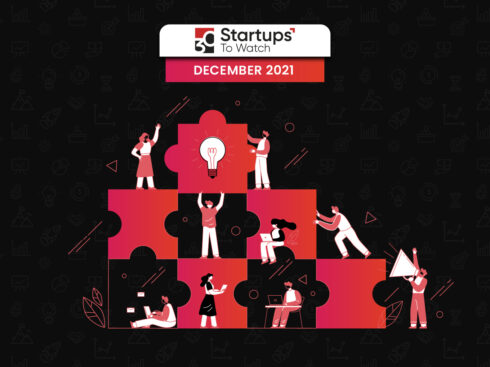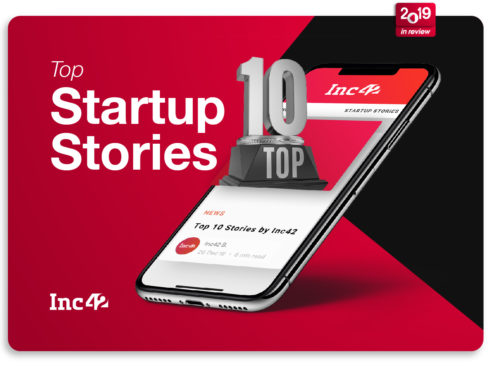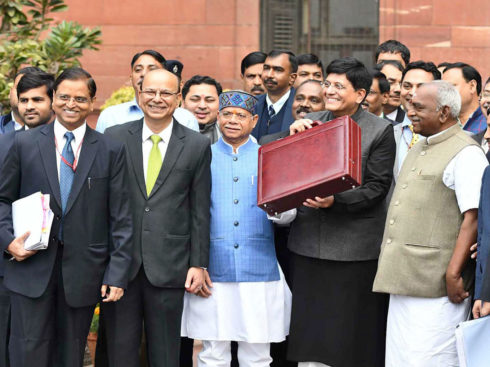SUMMARY
Inc42, in its 21st episode of Ask Me Anything (AMA), hosted Siddharth Talwar, co-founder and partner of Venture capital firm Lightbox
Lightbox has a fund corpus of $232 Mn and has invested in startups such as Faasos, Droom etc
Sid Talwar says he looks for companies that are thinking about solving problems that are fundamentally a big deal in India
Inc42, in the 21st episode of Ask Me Anything (AMA), hosted Siddharth Talwar, co-founder and partner of Venture capital firm Lightbox. He has been in the startup ecosystem for nearly two decades with hands-on-experience of being an entrepreneur and then an investor, supporting consumer technology startups.
Talwar began his entrepreneurial journey with Evolv, a vocational training company funded by Singapore Technologies. Over the years, he built the company into a business that trained more than 20K people annually across 200 cities in South Asia and the Middle East.
He sold Evolv to NIIT in 2007, but continued to lead the internal teams in adopting new technologies. After leaving NIIT in 2011, Siddharth took advisory roles with various startups and angel funds before starting Lightbox Ventures.
Founded in 2014 by Sandeep Murthy and Talwar, Lightbox has a fund corpus of $232 Mn and has invested in startups such as online food delivery startup Faasos, automobile marketplace Droom, online travel aggregator Cleartrip, furniture rental startup Furlenco, mobile adtech startup InMobi, and GPS navigation company MapMyIndia, among others.
The fund saw a successful, huge exit from edtech startup Embibe when Reliance Industries invested $180 Mn in the company, buying out 72.69% stake of investors including Lightbox.
Here are a few excerpts from the Inc42 Facebook Live AMA with Venture capital Lightbox co-founder Siddharth Talwar.
Inc42: In 2011, when you left NIIT, you started engaging more with the Indian investor community and startups. That was the beginning of tech startup era in India. How do you perceive the startup ecosystem evolving in these last seven years?
Sid Talwar: I think the ecosystem started little earlier. In 2005-2006 to 2007, a lot of larger business that you see today had their start. A lot of large VCs, both from India and abroad, in the market today came around that time. But I think, the last seven years have seen a massive increase — both in the number of entrepreneurs and the number of startups. The number of second-time entrepreneurs and the amounts of money — available at a very-very early stage as well as at a much later stage — has also increased. There’s a lot of good things happening in the Indian startup ecosystem, and it’s a long way to go. We have a lot of learnings to imbibe, a lot of new opportunities to explore that will fundamentally help change the landscape of so many industries.
We have been stuck in the mud in our own country to be able to do so many things. The open landscape in the country, quite honestly for the first time ever, is now providing an opportunity for anybody to come and try their hands without being judged — not on the basis of who they are, but what they can do. I think that is great not only for the VC community or startup ecosystem but for the entire country at large.
Inc42: Talking about Lightbox Ventures investments, tell us if you are specifically focussing on particular sectors/industries or are you agnostic about it?
Sid Talwar: We have a very consumer-focussed fund. Obviously, we want to use technology as a medium to support businesses to grow. Technology can be used for many different services like marketing, solution, product promotion, etc. I look for companies that are thinking about solving problems that could fundamentally become a big deal in India.
Startups like Faasos, rather than looking at its distribution of food — which is also a very great and important business — we found that they are actually scaling good quality food, which is not available in India, and we are trying to solve the much larger part of the problem by trying to solve that.
When we look at Furlenco, we understood that distribution of furniture is a problem in our country, but the larger problem is that the people don’t want to deal with the idea of painstakingly getting the furniture built; how to get rid of the furniture, keeping the same furniture all the time; how to keep good furniture, etc.
Neither Faasos nor Furlenco as a model exist anywhere in the world, and could only exist in India as they resolve an India-centric issue.
So how we think about the businesses, be any sector, the thought of why a problem is an Indian problem, and why the solution that a company is providing is the right solution, are very important for us.
Droom is another good example. In the huge automobile space, we saw classifying is a problem but on the other side, no one is thinking of how to sell used cars in a trustworthy way — which already exists in the US and to some extent in China, but it did not exist in India. We then create the trust to sell cars online, which no one is doing.
A lot of them are real examples of how business models in India differ from any startups in the world.
Inc42: How has your past experience of running a business helped you as an investor. What value does it bring to startups in your portfolio?
Sid Talwar: I and my partners at Lightbox have the same background. We all have been entrepreneurs in India, we all have raised money in India, running a business in India. We have all gone down that road together for many years. So it has been similar for all of us.
My partners and I had hundreds of people working for us at different periods of time. We have seen that while dealing with other companies, consumers, partners, investors, employees, founders, our interaction helps them; the pieces of advice we give, conversations we have, has a context to them. That’s one part of it.
The other part is the time and inclination to have a conversation with entrepreneurs.
At Lightbox, we have time to sit with them, speak to them, listen to them, and to help them with our own experience and exposure. So I think both of these things coming together is truly the impact we are able to provide.
Inc42: A common observation in the startup ecosystem is that majority of startups after raising funds take it as a ‘mark of ‘success’ when essentially, funding is a kind of loan that you are taking. Why would they consider taking a loan as a mark of success? So how do you see this and do you find this sort of perception dangerous?
Sid Talwar: Funding is not a loan; funding is a partnership. A loan is a liability. Funding, from a private institution and equity standpoint, is a partnership between believers in an objective for the long term. They are very different. Loan is not a journey, it has an end-point.
I also don’t think entrepreneurs take this to be a victory; it is the news that tries to make it look so. It’s an interesting phenomenon. Maybe people like to read about it and that’s why journalists write about it so much.
People have been raising money forever. Banks, the petroleum business have been raising money and no one writes about them. But if a startup raises funds, whether it is $500K or $50 Mn, that is going to be a news. When the RoC (Registrar of Companies) filing happens, you get 20 articles about it. Everyone gets busy to know who raised what amount of money. But no one cares about what happens with this money? why you need that money?
So a lot of it is perpetuated news reports, unfortunately. I can understand why news reports do it — because people want to read about it — but I have not met any entrepreneurs looking to raise money just because so-and-so raised money, and so I have to now raise money.
Inc42: Please confirm what is important for you: Traction or Idea plus team?
Sid Talwar: Traction… not so much, but there are many things that are important.
The most important thing is understanding your industry, understanding that why your solution is the right solution to the right problem.
Then convincing someone why that is going to be what is needed, and you are the right person to do it.
Inc42: There are a lot of teenagers with entrepreneurial ideas, which have great potential and high scalability. Who should they approach to execute them rightly?
Sid Talwar: If I can use my own example. I was not a teenager when I started my business, I was of 23. I thought it was a great idea ready to kind of sell the idea, but I had zero execution sense and sensibility.
I think that you’d want the right people to guide you in that. I don’t think that you could take an idea and necessarily give it to someone else to execute it.
If you feel that you have to wait with that idea, wait. No idea is going to die just because you don’t wait to start with it.
If your idea has a time limit, then you need to think about what part of your idea needs well treatment. So, don’t give your idea to someone else to execute without you being there.
Inc42: What is that one thing, according to you, Indian startups need to compete with global players from China and the US?
Sid Talwar: I think, the brand needs to mean something to stand for. I think this is what is lacking in a lot of the brands in India today.
We need to think about how can my brand be to different from others in the market.
Anyone who has a large pool of money — and wants to splash ads on television and billboard is going to do that — but how are you going to do something different? how are you going to create a community? how will you convince someone without making a big splash about your product, your experience? I think these are some fundamental aspects that a lot of business in India are still trying to grapple with. Whereas, a lot of business in the US have evolved.
This is not all. There’s a lot more thoughts, insights, and experiences that Sid Talwar shared with us on our AMA.
Stay tuned for our next article on Sid’s Ask Me Anything!



























